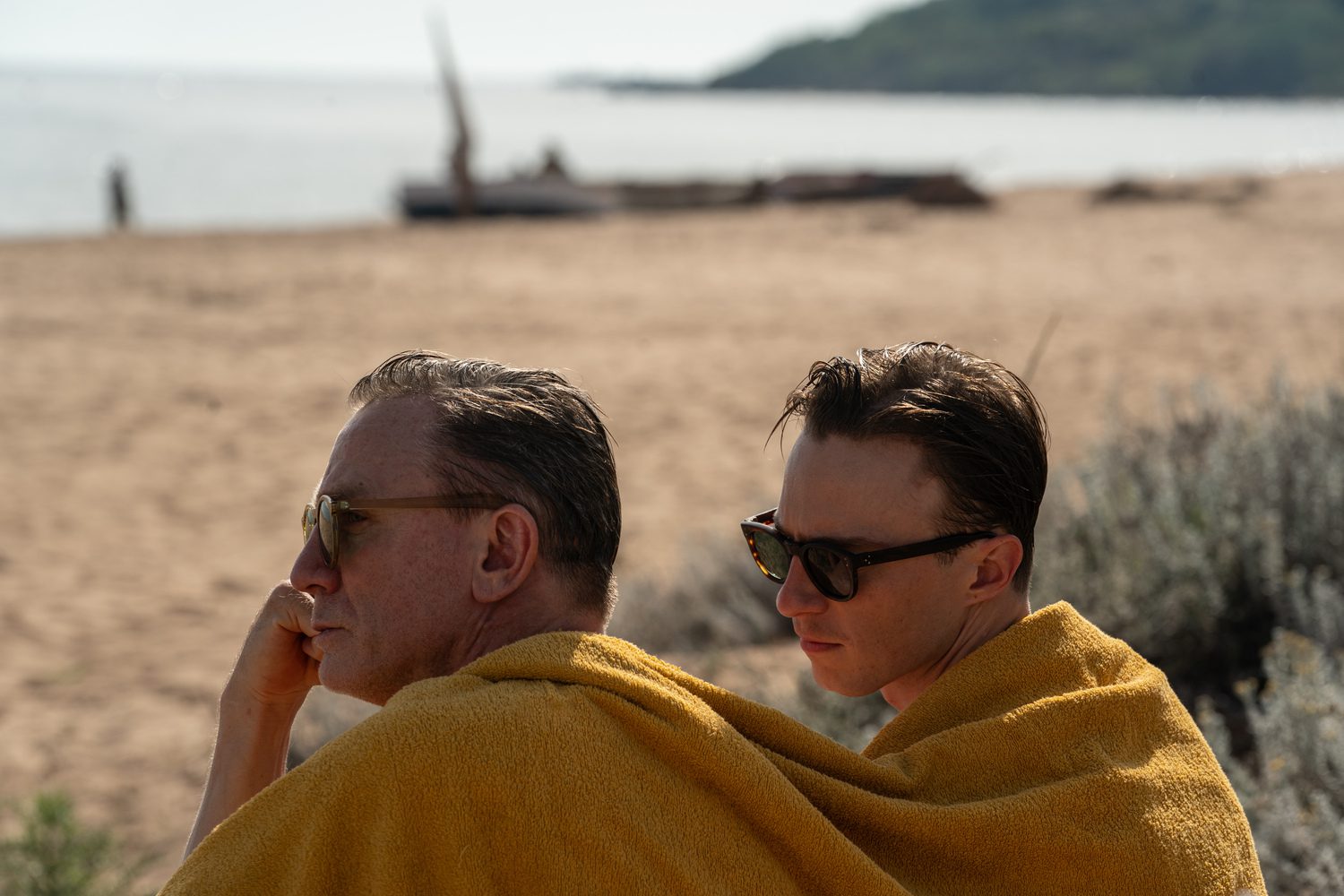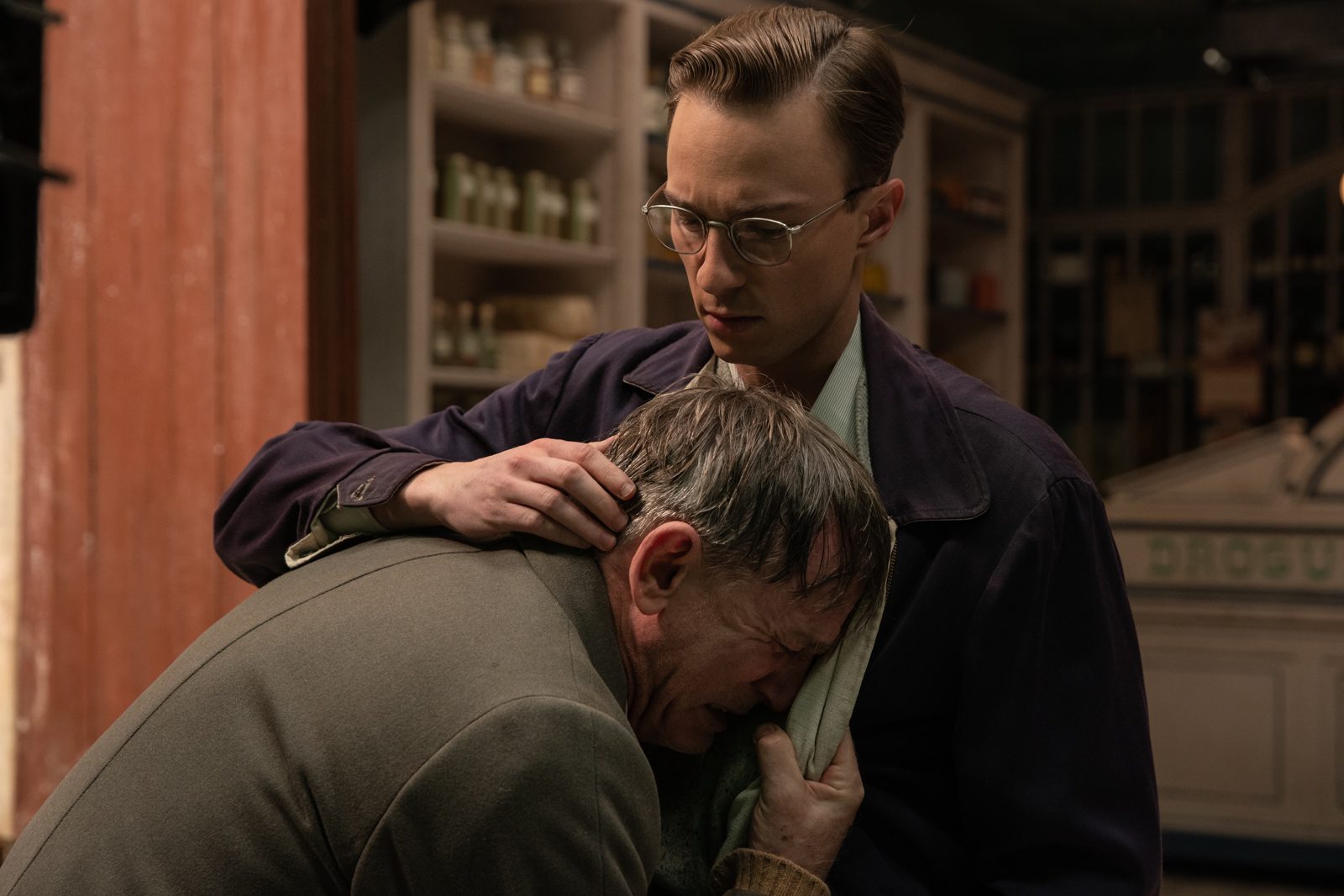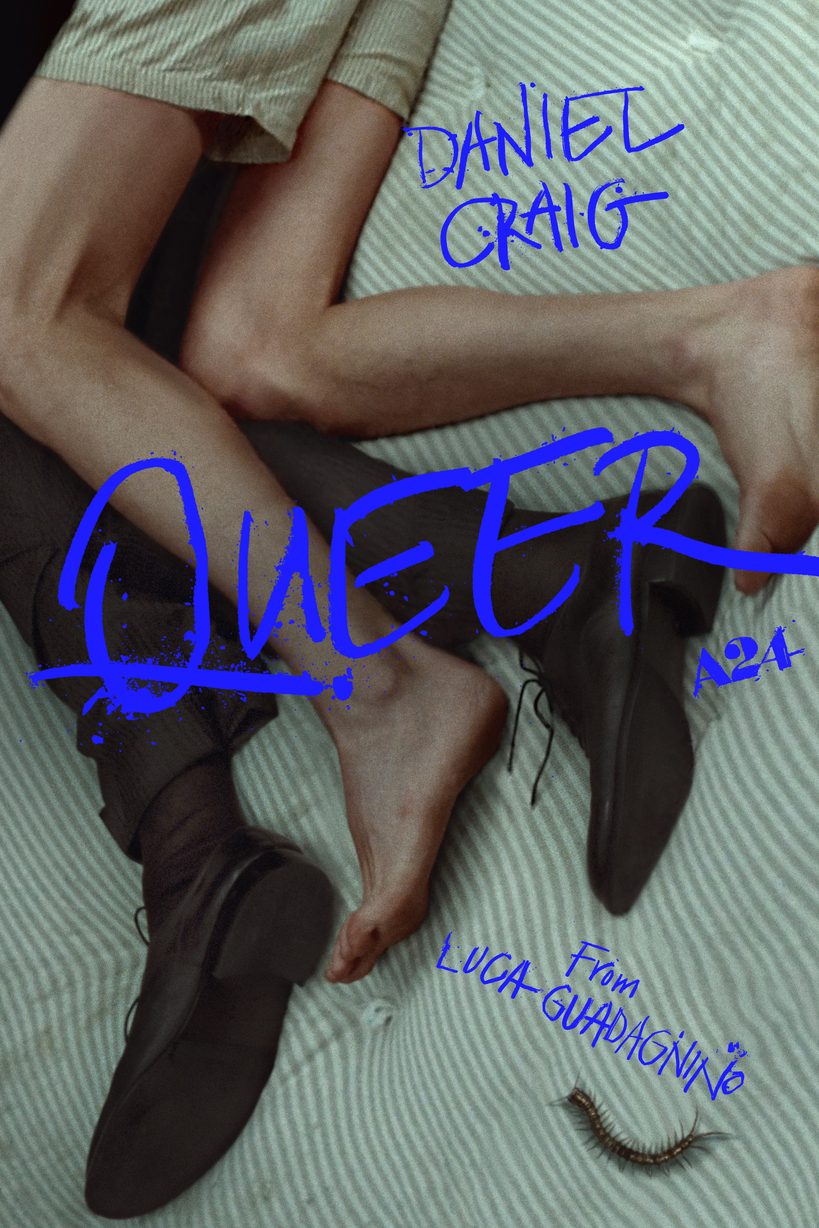
Luca Guadagnino’s Queer, based on William S. Burroughs’ semi-autobiographical novel, is a visually intoxicating and emotionally wrenching cinematic experience. Anchored by Daniel Craig’s searing portrayal of William Lee, this adaptation turns the quiet desperation of Burroughs’ narrative into a potent exploration of longing, addiction, and identity.
Table of Contents
A Bold Vision of Burroughs’ World
Guadagnino’s adaptation of Queer is steeped in the director’s trademark aesthetics: sensual visuals, evocative use of color, and an atmosphere that oscillates between dreamlike and suffocating. Mexico City, with its vibrant markets, dilapidated alleys, and intoxicating nightlife, is a character in itself, mirroring William Lee’s internal turmoil. The setting is captured with the kind of detail that immerses the audience in its decayed beauty while hinting at the inescapable loneliness lurking beneath its surface.
The screenplay by Justin Kuritzkes skillfully distills the essence of Burroughs’ prose into dialogue that feels sharp and contemporary without losing its literary weight. The film’s narrative flows like a fever dream, weaving Lee’s fragmented thoughts with moments of surreal clarity, inviting the audience into his tortured psyche. Guadagnino respects Burroughs’ dark humor, ensuring that the film retains a biting edge amid its melancholia.
Daniel Craig’s Transformative Performance
As William Lee, Daniel Craig delivers one of the most nuanced performances of his career. He captures Lee’s vulnerability, bitterness, and yearning with remarkable precision. Craig’s portrayal avoids caricature, instead presenting a man trapped by his addictions and haunted by his failures. The character’s desperation for connection, embodied in his infatuation with Eugene Allerton (Drew Starkey), is palpable and heartbreakingly raw.
Starkey, as Allerton, serves as the perfect foil to Craig’s Lee. His reserved demeanor and quiet strength create an alluring enigma that drives Lee’s obsession. Their dynamic is magnetic yet painful to watch, highlighting the uneven power dynamics and the futility of Lee’s desires. Jason Schwartzman and Daan de Wit round out the cast with memorable performances, adding texture to the world Lee inhabits without detracting from the central relationship.

A Cinematic Exploration of Longing and Addiction
Queer is not a film for the faint of heart. Its explicit exploration of sexuality and addiction may alienate some viewers, but it is this unflinching honesty that makes it so compelling. The film delves into the darker aspects of desire, exposing the ways in which it can consume and destroy. Guadagnino’s direction ensures that these themes are handled with sensitivity, balancing moments of raw intensity with quieter, introspective scenes.
The cinematography by Sayombhu Mukdeeprom deserves special mention. Every frame is meticulously crafted, with an emphasis on rich textures and striking contrasts. The camera lingers on details—the flicker of a candle, the sweat on a brow, the fleeting glance of a lover—creating a visceral intimacy that pulls the audience deeper into Lee’s world. The music, arranged by Trent Reznor and Atticus Ross, is equally haunting, blending dissonance and melody to reflect the film’s emotional undercurrents.
Emotional Frustration and Artistic Achievement
One of Queer’s greatest strengths is also its most challenging aspect: it refuses to offer resolution. The film leaves the audience with an ache rather than closure, mirroring Lee’s unfulfilled longing. This emotional frustration is intentional, a testament to Guadagnino’s commitment to Burroughs’ vision. Yet, it may leave some viewers feeling alienated, yearning for a more cathartic conclusion.
Despite this, Queer is an artistic triumph. It captures the complexity of human desire with a rare honesty, offering a portrait of a man grappling with his identity, his addictions, and his place in the world. It is a film that lingers in the mind long after the credits roll, its beauty and pain etched into the viewer’s consciousness.
Final Thoughts
Luca Guadagnino’s Queer is a visually lush and emotionally potent adaptation that does justice to William S. Burroughs’ challenging source material. Anchored by Daniel Craig’s career-defining performance, the film explores themes of longing, addiction, and identity with unflinching honesty. While its refusal to offer resolution may frustrate some viewers, it is this very quality that makes Queer a hauntingly unforgettable experience.
About “Queer”
Synopsis: In 1950s Mexico City, an American ex-pat in his late forties leads a solitary life amidst a small American community. However, the arrival of a young student stirs the man into finally establishing a meaningful connection with someone.
Director(s): Luca Guadagnino
Writer(s): William S. Burroughs, Justin Kuritzkes
Cast: Daniel Craig, Drew Starkey, Daan de Wit, Jason Schwartzman
Rated: R
Runtime: 2h 17m
Releases: December 13, 2024

he/him • aapi • intj • geek • photographer • journalist • podcaster • martial artist • foodie • dj • cinephile • gamer • traveler




























